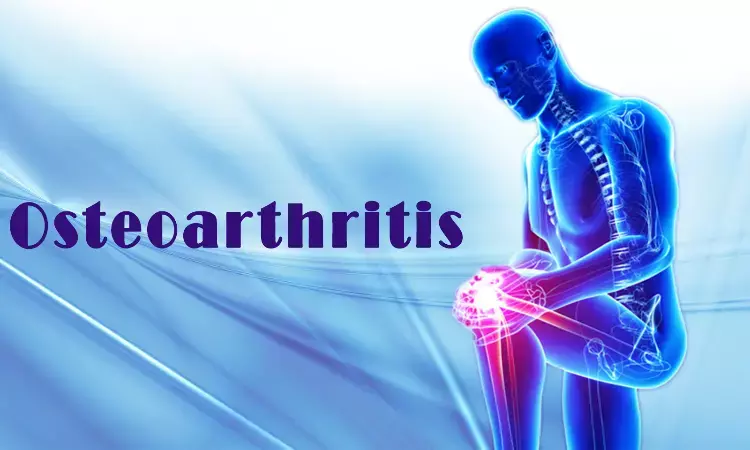- Home
- Medical news & Guidelines
- Anesthesiology
- Cardiology and CTVS
- Critical Care
- Dentistry
- Dermatology
- Diabetes and Endocrinology
- ENT
- Gastroenterology
- Medicine
- Nephrology
- Neurology
- Obstretics-Gynaecology
- Oncology
- Ophthalmology
- Orthopaedics
- Pediatrics-Neonatology
- Psychiatry
- Pulmonology
- Radiology
- Surgery
- Urology
- Laboratory Medicine
- Diet
- Nursing
- Paramedical
- Physiotherapy
- Health news
- Fact Check
- Bone Health Fact Check
- Brain Health Fact Check
- Cancer Related Fact Check
- Child Care Fact Check
- Dental and oral health fact check
- Diabetes and metabolic health fact check
- Diet and Nutrition Fact Check
- Eye and ENT Care Fact Check
- Fitness fact check
- Gut health fact check
- Heart health fact check
- Kidney health fact check
- Medical education fact check
- Men's health fact check
- Respiratory fact check
- Skin and hair care fact check
- Vaccine and Immunization fact check
- Women's health fact check
- AYUSH
- State News
- Andaman and Nicobar Islands
- Andhra Pradesh
- Arunachal Pradesh
- Assam
- Bihar
- Chandigarh
- Chattisgarh
- Dadra and Nagar Haveli
- Daman and Diu
- Delhi
- Goa
- Gujarat
- Haryana
- Himachal Pradesh
- Jammu & Kashmir
- Jharkhand
- Karnataka
- Kerala
- Ladakh
- Lakshadweep
- Madhya Pradesh
- Maharashtra
- Manipur
- Meghalaya
- Mizoram
- Nagaland
- Odisha
- Puducherry
- Punjab
- Rajasthan
- Sikkim
- Tamil Nadu
- Telangana
- Tripura
- Uttar Pradesh
- Uttrakhand
- West Bengal
- Medical Education
- Industry
Estrogen deficiency- a potential risk factor for osteoarthritis, Finds study

Osteoarthritis is the most common form of arthritis. It is strongly associated with aging and typically affects the knee, hip, spine, great toe, and hands.
Osteoarthritis affects all articular tissues and finally leads to joint failure. Among the multiple physiopathological mechanisms involved in osteoarthritis, those related to sex hormone control have been attracting much attention, in particular those involving estrogens.
In contrast to other tissues such as the endometrium, breast, brain and non-joint bone, it was traditionally thought that joint tissues were non-responsive to estrogens and estrogen deficit. However, interest in estrogens was stimulated by the large proportion of postmenopausal women with osteoarthritis and the complexity of their role in this disease.
Although articular tissues have long been considered unresponsive to estrogens or their deficiency, there is now increasing evidence that estrogens influence the activity of joint tissues through complex molecular pathways that act at multiple levels.
Estrogen replacement therapy and current selective estrogen receptor modulators have mixed effectiveness in preserving and/or restoring joint tissue in osteoarthritis. Estrogen and osteoarthritis association has previously been proposed. However, reports from a recent research published in the Journal of Orthopaedics suggests that increased estrogen receptors alpha expression is associated with age, and degeneration. Furthermore, this infers that estrogen deficiency is a risk for osteoarthritis in females.
Marissa L.Hughbanks and associates from the School of Medicine, University of Colorado, Anschutz Medical Campus, Aurora, CO, USA evaluated the presence of estrogen receptors (ER)-α in articular cartilage, and its association.
The authors carried out a prospective cohort study of women undergoing anterior cruciate ligament reconstruction (controls) or total knee arthroplasty (cases). Cartilage samples were processed and estrogen receptors-α expression was quantified.
The study included a total of twenty patients, out of which 12 were categorized as cases and 8 came under the group of controls. ER-α expression was higher in the case subjects.The authors finally concluded that increased estrogen receptors-α expression is associated with age, and degeneration. This suggests estrogen deficiency is a risk for osteoarthritis and is inversely related to proliferative looking chondrocytes.
For futher reference log in to:
https://doi.org/10.1016/j.jor.2021.08.005
Dr. Nandita Mohan is a practicing pediatric dentist with more than 5 years of clinical work experience. Along with this, she is equally interested in keeping herself up to date about the latest developments in the field of medicine and dentistry which is the driving force for her to be in association with Medical Dialogues. She also has her name attached with many publications; both national and international. She has pursued her BDS from Rajiv Gandhi University of Health Sciences, Bangalore and later went to enter her dream specialty (MDS) in the Department of Pedodontics and Preventive Dentistry from Pt. B.D. Sharma University of Health Sciences. Through all the years of experience, her core interest in learning something new has never stopped. She can be contacted at editorial@medicaldialogues.in. Contact no. 011-43720751
Dr Kamal Kant Kohli-MBBS, DTCD- a chest specialist with more than 30 years of practice and a flair for writing clinical articles, Dr Kamal Kant Kohli joined Medical Dialogues as a Chief Editor of Medical News. Besides writing articles, as an editor, he proofreads and verifies all the medical content published on Medical Dialogues including those coming from journals, studies,medical conferences,guidelines etc. Email: drkohli@medicaldialogues.in. Contact no. 011-43720751


